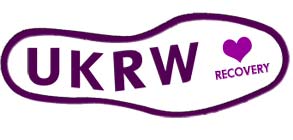Maintaining legitimacy and authenticity when the money comes in
You know I think it’s great that various funders have came forward for wiredin and also throughout the UK I hear that more and more organisations claiming to be Recovery community organisations or recovery community projects, recovery cafés, etc are growing rapidly.
I also think it’s wonderful that there appears to be pockets of growth in national and local government offering foundation support for various recovery advocacy and peer support activities to organisations but I think it’s worth pointing out that they may or may not have strong ties to local communities of recovery and if they don’t this raises the question of the legitimacy or authenticity of organisations providing peer support services and how such legitimacy and authenticity can be maintained.
There are no rules from on high cast in stone to define such characteristics, but there is an extensive body of historical experience (for more than two centuries) that offers some wisdom on this issue.
This historical legacy and current sentiments within grassroots recovery community organistions (RCOs) would suggest 10 characteristics that define authentic RCOs and that can help RCOs manage threats to their authenticity. Authentic RCOs are organized by and for individuals and families in recovery. Toward that end, they :
1. Assure recovery representation (maintain recovery representation greater than 50% at membership, board, and staff levels)
2. Assure recovery leadership (leaders are drawn from individuals and family members in recovery or allies vetted by communities of recovery; RCO is committed to peer leadership development activities)
3. Maintain singularity of purpose (focus is on addiction recovery as evidenced by their mission, core values, plans and activities)
4. Minimize problems of “double agentry” (people in key leadership roles do not also represent other institutional—ideological, political, financial— interests that could undermine the mission of the RCO)
5. Seek diversification of funding (efforts are made to minimize the risk of colonization or corruption of organizational values by external authorities;
funding is rejected that comes with requirements that would compromise service relationships and relationships with communities of recovery)
funding is rejected that comes with requirements that would compromise service relationships and relationships with communities of recovery)
6. Focus on long-term recovery at personal, family and community levels (recovery viewed as a process of intrapersonal, interpersonal and environmental transformation)
7. Distinguish their roles (from recovery mutual aid fellowships, professional treatment agencies and other agencies within the alcohol and other drug problems arena)
8. Respect multiple pathways of long-term recovery (recognise the legitimacy of multiple pathways of recovery and the rights of individuals/families to choose those pathways that best fit their needs and values)
9. Cautiously collaborate with kindred organisations (while resisting affiliations that would compromise their autonomy, integrity and mission)
10. Are responsible stewards (places recovery-focused services over personal or institutional aggrandizement and profit)
Worth a ponder or three, Can anyone think of anything else ?

1 comment:
learned a lot
Post a Comment